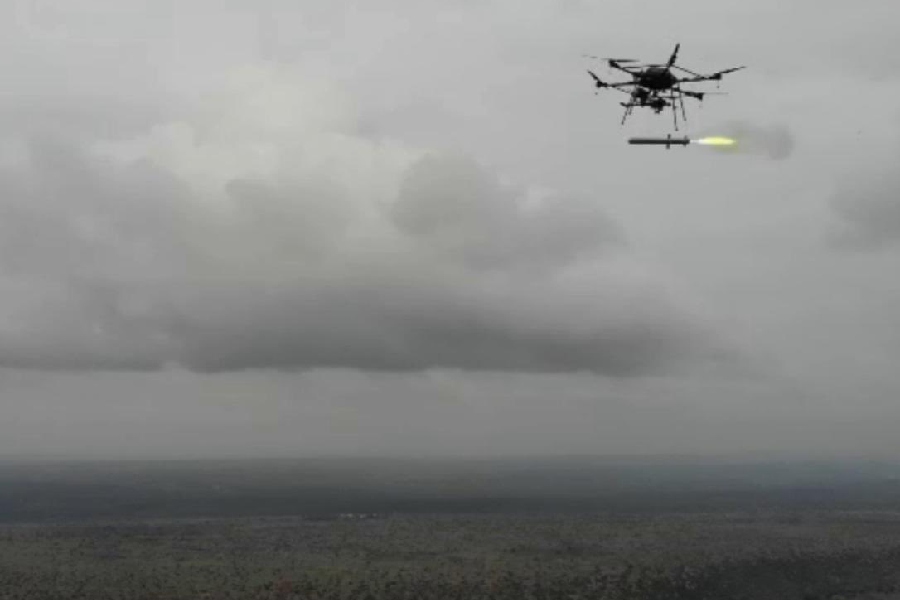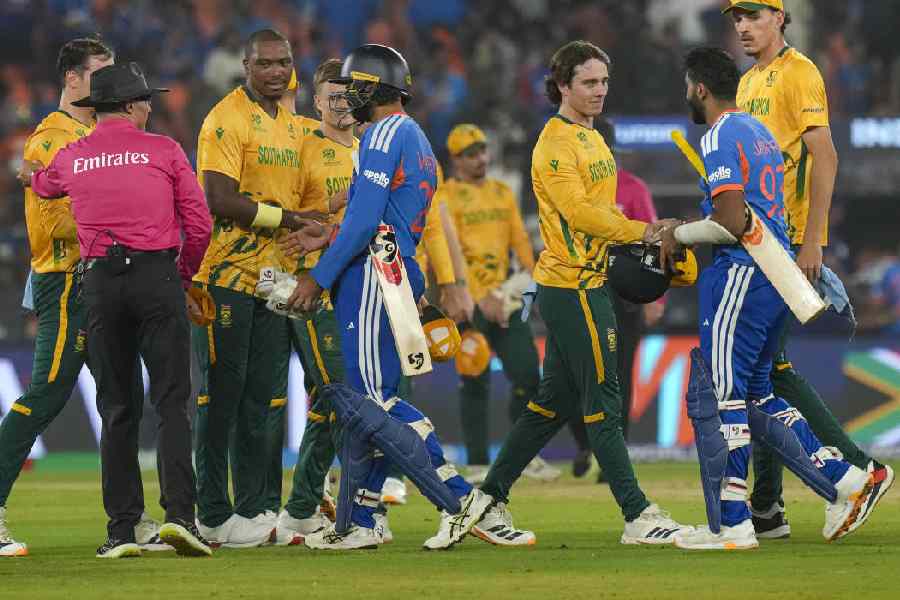 |
July 9: Every reckless driver in Calcutta and the rest of the world would want to drive in Pakistan, now that it can be said with authority that the world’s most wanted man could either bluff or buy his way out of a speeding offence there.
Apparently, Osama bin Laden did so and much more — but got away with it because the Pakistan security establishment was too absorbed in watching what India was doing. ( )
Leaked by broadcaster Al Jazeera, an official report looking into the killing of bin Laden sparkles with gems about his almost decade-long — and unmolested — escapades in Pakistan. The report paints a picture of a restless and paranoid man who led a frugal life, consumed chocolate with an apple to battle sluggishness and was called “miskeen kaka (poor uncle)” by an aide’s child.
“OBL” (Osama bin Laden) also wore a cowboy hat to avoid being spotted from above — a choice that should rankle George W. Bush, the Texan who had declared he wanted the 9/11 terrorist “dead or alive” and fashioned a global cowboy policy to hunt the fugitive down.
The mission was eventually accomplished under the watch of Barack Obama, whose Navy SEALs commandos took out bin Laden on May 2, 2011, in Abbottabad, close to Islamabad.
Bin Laden took to wearing the cowboy hat when moving about his compound in Abbottabad in order to avoid detection from the sky, his wives told investigators.
The eyes on the ground were evidently more easy to fool, probably because the al Qaida leader is said to have shaved his beard at times.
In one testimony showing how close bin Laden came to being captured, Maryam, the wife of one of his most trusted aides, recounted how his car was stopped by Pakistani police in the Swat region.
“Once when they were all... on a visit to the bazaar they were stopped for speeding by a policeman,” the report says. “But her (Maryam’s) husband quickly settled the matter with the policeman and they drove on.”
It is not clear how the matter was “settled”. Usual options include greasing the palm and dropping names.
Had the second option been chosen, the passengers would have had some names to drop. Although the report largely blames “collective incompetence and negligence” for bin Laden staying in Pakistan undetected, it does say that “connivance, collaboration and co-operation at some levels cannot be entirely discounted”.
The 336-page report, written by a judge-led commission, is based on interviews with 201 sources, including members of bin Laden’s family and various officials.
In some ways, the report is in line with expectations and does not contradict the Pakistan government’s attempts to dismiss suggestions that its intelligence agencies had sheltered bin Laden.
But the report contains flashes of visceral scepticism about the testimony of key officials, notes that key questions remained unanswered and allows for the possibility that some security officials had covertly helped bin Laden.
The report, however, adds: “Although the possibility of some degree of connivance inside or outside the government cannot be entirely discounted, no individual can be identified as guilty of connivance.”
The report is fiercely critical of the “illegal manner” in which the US, which did not co-operate with the commission, conducted the raid. “The US acted like a criminal thug,” the report said.
Bin Laden arrived in Pakistan in the spring or summer of 2002, the report says, at one point spending two years in Haripur before moving to the Abbottabad compound with his big family in August 2005.
“All the places in Pakistan where OBL stayed are not fully known,” the report says. “But it included FATA (South Waziristan and Bajaur), Peshawar, Swat and Haripur.”
It found that he probably crossed into Pakistan from Afghanistan’s Tora Bora area, where US forces were hunting him, sometime in 2002. His family moved from Afghanistan's Kandahar to Karachi shortly after the September 11, 2001 attacks.
“They kept a very low profile and lived extremely frugally. They never exposed themselves to public view. They had minimum security,” the report says.
“OBL successfully minimised any ‘signature’ of his presence. His minimal support group blended easily with the surrounding community.… His wives, children and grandchildren hardly ever emerged from the places where they stayed. No one ever visited them, not even trusted al Qaida members.”
His wives, in their testimonies, said bin Laden was not fond of personal possessions and had very few clothes.
“Before coming to Abbottabad he had just three pairs of salwar kameez for summer and three pairs for winter,” the report says. “Whenever OBL felt unwell (unofficial US accounts indicate he suffered from Addison’s disease), he treated himself with traditional Arab medicine... and whenever he felt sluggish, he would take some chocolate with an apple.”
Khairriyah, one of bin Laden’s three wives, escaped to Iran -- en route to Syria -- after sneaking out of Kandahar (Afghanistan) to Quetta (Pakistan). She was with her step son Sa’ad, son Hamza and his wife and children. Arrested in Tehran, they were let off without any explanation.
Free, Khairrayah went back through Kandahar to Waziristan, where bin Laden sent her a message telling her she would be with him soon.
The Qaida chief had her brought to the Abbottabad house. It is unclear whether Iran knew her identity and if it tried to interrogate or follow her.
Maryam, the wife of Ibrahim, recalled travelling with her husband, a woman called Amal, and a “very tall, clean-shaven Arab” from Peshawar to Swat, where they stayed for six-to-eight months, and where Amal became pregnant. “Only then did Maryam realise that Amal was the wife of the tall, clean-shaven Arab.”
Rehma, Maryam and Ibrahim’s 9-year-old child, had once asked her father why the “uncle who lives upstairs” -- bin Laden -- never went to the bazaar in Abbottabad.
Ibrahim concoted a story -- that bin Laden was too poor to shop. Rehma started calling bin Laden “miskeen kaka (poor uncle)”.
The family would watch television regularly, and Al Jazeera was their favourite channel. But one day, Bin Laden’s photo flashed on the screen and Rehma recognised her “miskeen kaka”. That was the day the television connections were snapped.
Additional reporting by Reuters and New York Times News Service










